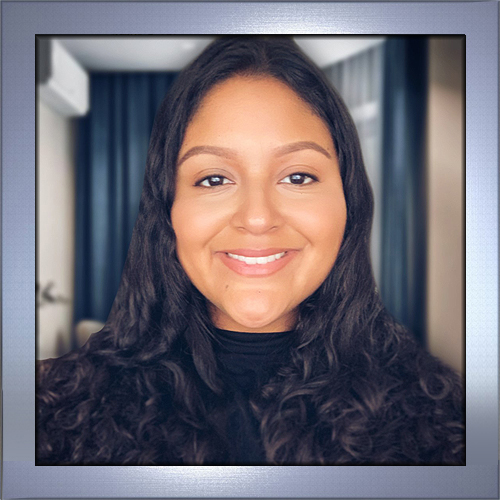-
Meet the Counselors: Kelly Rivadeneyra, MSW, LCSW
- Posted on November 18, 2021
- by admin
- in All Articles, NFSB Blog
- Comments Off on Meet the Counselors: Kelly Rivadeneyra, MSW, LCSW
 Kelly Rivadeneyra (Master of Social Work), LCSW (Licensed Clinical Social Worker) always had an interest in social work. Her interest grew as a double major in psychology and criminal justice at Rutgers University, but it wasn’t until she started working at an adolescent residential treatment center that she truly found her calling.
Kelly Rivadeneyra (Master of Social Work), LCSW (Licensed Clinical Social Worker) always had an interest in social work. Her interest grew as a double major in psychology and criminal justice at Rutgers University, but it wasn’t until she started working at an adolescent residential treatment center that she truly found her calling.“I felt like I had a natural ability to connect with the adolescents at that facility and understand their struggles,” Kelly said. “This experience crystallized my own path and inspired me to enroll in a graduate program for social work at Rutgers.”
Soon after earning her master’s degree, Kelly secured a position at an outpatient facility, where she was able to build upon her clinical skills with many populations. Although she had often worked with adolescents, her experience with children under 12 was new – and enlightening.
“I learned that children process information and feelings differently, so therapy requires a different approach,” Kelly said. “With an adult, you can listen to them talk and have a conversation. With children, you have to step into their world with clay, painting, or some other activity. This helps them process their feelings and allows the therapist to observe what the child is interpreting.”
Helping Young Adults Navigate Change
Kelly’s experience with adolescents has sparked an interest in helping young adults who find themselves at a turning point in their lives and aren’t sure what direction to take. She looks forward to helping these individuals better understand who they are, so they feel comfortable with their decisions.“A lot of people graduating from high school and college are overcome with anxiety and fear about what will come next,” Kelly said. “There’s an understanding and expectation of being in the driver’s seat and making choices for yourself, which can be especially scary for young people who come from families that haven’t shown much support.”
Many face identity or existential issues. Who am I? What are my interests and passions? What do I want to do with my life? Families often set certain expectations about what clubs to join, what sports to play, and where to go to school. This can leave young people without any feeling of autonomy.
Therapy can be extremely helpful in processing these feelings.
“Establishing rapport is a critical first step,” Kelly said. “I need to understand the client’s world. I believe there’s no progress until there’s an alliance with the client. Then we can explore their experiences growing up and their value system.”
Many young people grow up with values and principles passed down to them by their parents. As they get older, values may change. Kelly works with clients to take inventory of what’s important to them so they can live by their own values and principles.
“I worked with a young man who was graduating from high school and didn’t have the best connection with his family,” Kelly said. “He wanted to set himself apart and find his own individuality. He wanted to feel seen and understood. My goal was to show that I understood him and help him understand himself.”
After struggling during his early high school years, he graduated and was accepted into a good college. Most importantly, he felt secure in who he is, what he values, and where he wanted to go in life.
“I was honored to be a part of that journey,” Kelly said. “Seeing the evolution of a person happen before me was very rewarding.”
What’s Next?
Kelly is taking coursework to become a trauma specialist. More and more research points to incorporating neuroscience into therapy. In other words, treatment for trauma needs to include the body.“When someone experiences a traumatic event, it’s not just the mind that’s processing and storing things,” Kelly said. “Experiences and emotions need to be processed psychologically and physically in the body. I’m excited to complete my coursework and bring what I learn to NFSB.”
If you’d like to learn more about the mental health services offered at The Center at NFSB, please visit our website or call 973-667-1884.
If you enjoyed this article please consider sharing it!

















